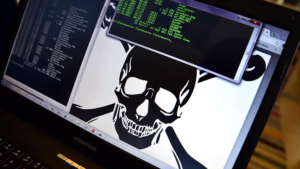Already struggling with the economic fallout of the Ukraine war, sanctions, and rampant inflation, Russia’s legal streaming services now face a fresh challenge: increased state control. A proposed law seeks to make the availability of distribution certificates contingent on upholding state-defined moral values, affecting both new releases and existing content libraries. Meanwhile, illegal pirate sites, operating without such restrictions, remain unaffected.
Decentralization and the Fight Against Censorship
Decentralized peer-to-peer (P2P) networks enable direct communication and interaction between users, eliminating the need for central servers. This absence of a central point of failure makes P2P networks more resilient and difficult to dismantle. Beyond enabling widespread distribution of copyrighted content, decentralized networks are often touted as a solution to government overreach.
Although the convergence of censorship and decentralization is rare, when state restrictions intensify, these networks may provide an alternative avenue for content distribution.
The Push for Traditional Values
On November 9, 2022, President Vladimir Putin signed Decree No. 809, outlining a strategic plan to counter sociocultural threats to Russia’s national security. The decree emphasizes the promotion and defense of traditional family values, moral principles, productive labor, patriotism, and loyalty to the state.
Threats to these values, as outlined in the decree, include extremist and terrorist organizations, news media, communication platforms, and actions by the United States and other “unfriendly foreign states.” The enforcement of this state policy is assigned to federal agencies overseeing defense, national security, internal affairs, and public order.
Streaming Services in the Crosshairs
While Russia’s cinema industry faced a dismal first half of 2024, online streaming platforms saw a 42% increase in sales compared to the previous year. However, a new bill submitted to the State Duma on December 12, 2024, threatens to reverse that growth. The proposed amendments to the Federal Laws “On Information” and “On State Support for Cinematography” would require streaming services to obtain distribution certificates, akin to those required by physical cinemas.
No Morals? No Certificate
State Duma member and actor Dmitry Pevtsov explained the necessity of certification on VK, stating, “My colleagues and I submitted a bill proposing that discrediting spiritual and moral values be grounds for refusing a distribution certificate.” The bill explicitly states that any film containing content that denies or discredits traditional Russian spiritual and moral values will be denied certification.
“The bill was developed to implement Decree 809 of President Vladimir Putin, which aims to preserve and strengthen traditional spiritual and moral values,” Pevtsov added.
Business Concerns: Costs, Burdens, and Piracy Risks
The Russian Union of Industrialists and Entrepreneurs (RSPP) strongly opposes the bill, warning that it introduces significant financial risks and burdens on the legal streaming industry. According to RSPP estimates, compliance costs could reach 500 million rubles (US$5.8 million) annually for copyright holders, producers, distributors, and streaming platforms. Additionally, requiring certification for existing content would impose further costs of 1.5 billion rubles (US$17.3 million). With up to 3,000 certificates issued yearly, the Ministry of Culture would face an overwhelming increase in workload, potentially issuing up to 20 times more certifications than before.
Alexey Byrdin, an anti-piracy expert with the RSPP, warns that the law would harm Russia’s growing legal market while driving audiences toward piracy. Leading streaming platforms share this concern. Kinopoisk describes the bill as extreme and damaging, while Ivi and Okko argue that its restrictions would push users toward less regulated alternatives.
Ivi notes that pirate operators, who function anonymously and evade regulation, would be the primary beneficiaries of this law. Okko believes that by imposing stricter regulations on legal services, the bill inadvertently strengthens the competitive edge of pirate platforms. The Media and Communications Union further warns that the law could be counterproductive, ultimately undermining its own objectives.
A report by SecurityLab on RSPP’s opposition included a link to an official statement published on RSPP’s website. However, as of February 18, the statement has since been removed.






